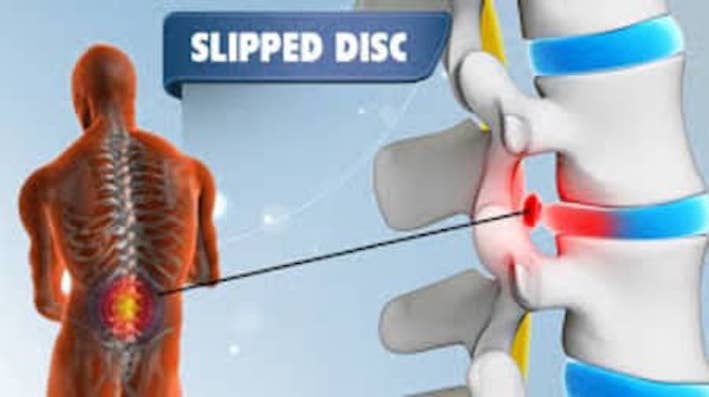
If you have an issue with one or more of your spinal discs, you’ve likely heard the term “slipped disc.”
This term is sometimes used interchangeably with a bulging disc and herniated disc, but there is no consensus in regards to its precise definition. To help clear things up, let’s look at how the term “slipped disc” may be used when it comes to problems with your spinal discs.
Slipped Disc as A Synonym for Herniated Disc
On occasion, a slipped disc may be used as a synonym for a herniated disc. This can cause confusion, as your spinal discs are firmly attached to your vertebrae—and they do not slip or move. Instead, it is the gel-like material inside your disc that “slips” out.
Each of your discs is comprised of a sturdy outer ring called the annulus fibrosus. This ring protects the gel-like interior, which is referred to as the nucleus pulposus. As a result of factors like aging and wear-and-tear, the annulus fibrosus may crack or tear—and in turn the nucleus pulpous may herniate, or slip out.
In addition to a slipped disc, a herniated disc may also be referred to by the term “ruptured disc.”
Slipped Disc and Micromotion Instability
As a result of the natural aging process, your discs degenerate over time. This happens to everyone, though not to the same degree—and not everyone will experience symptoms.
If the annulus fibrosus, or the tough outer ring of your spinal disc, wears down, it may not be as effective in inhibiting motion in your spin
The symptoms that result from a degenerated disc are referred to as degenerative disc disease.
The Importance of a Correct Diagnosis
Ultimately, what is important is not the term that is used—but rather identifying the cause of your symptoms. For example, if you have a herniated disc, the disc space is not the source of your pain. Instead, the gel-like material inside your disc is likely irritating or compressing a nearby nerve root.
Remember that if you hear the term “slipped disc,” or any other medical jargon you don’t understand, don’t be afraid to ask for clarification from your doctor. You and your medical professional are a team, and so it is important you are on the same page.
Precision Pain Care and Rehabilitation has two convenient locations in Richmond Hill – Queens and New Hyde Park – Long Island. Call the Richmond Hill office at (718) 215-1888, or (516) 419-4480 for Long Island office, to arrange an appointment with our Interventional Pain Management Specialist, Dr. Jeffrey Chacko.













